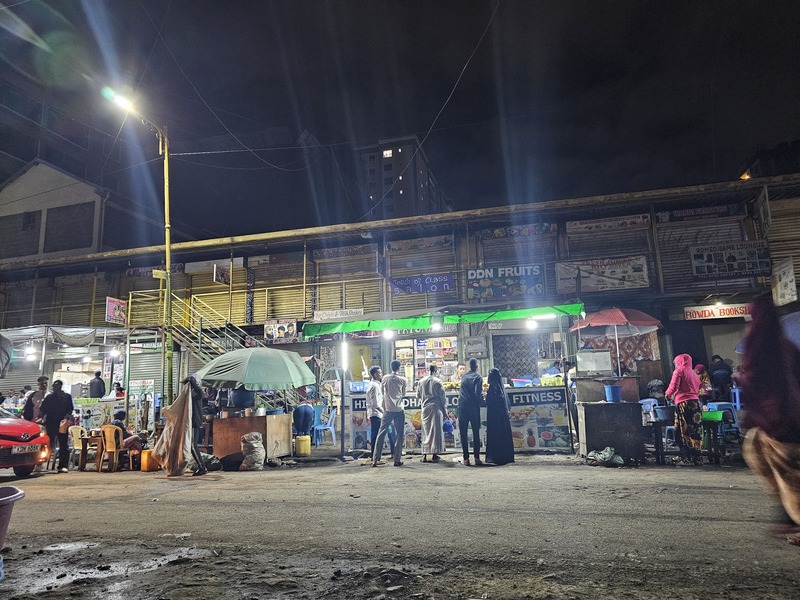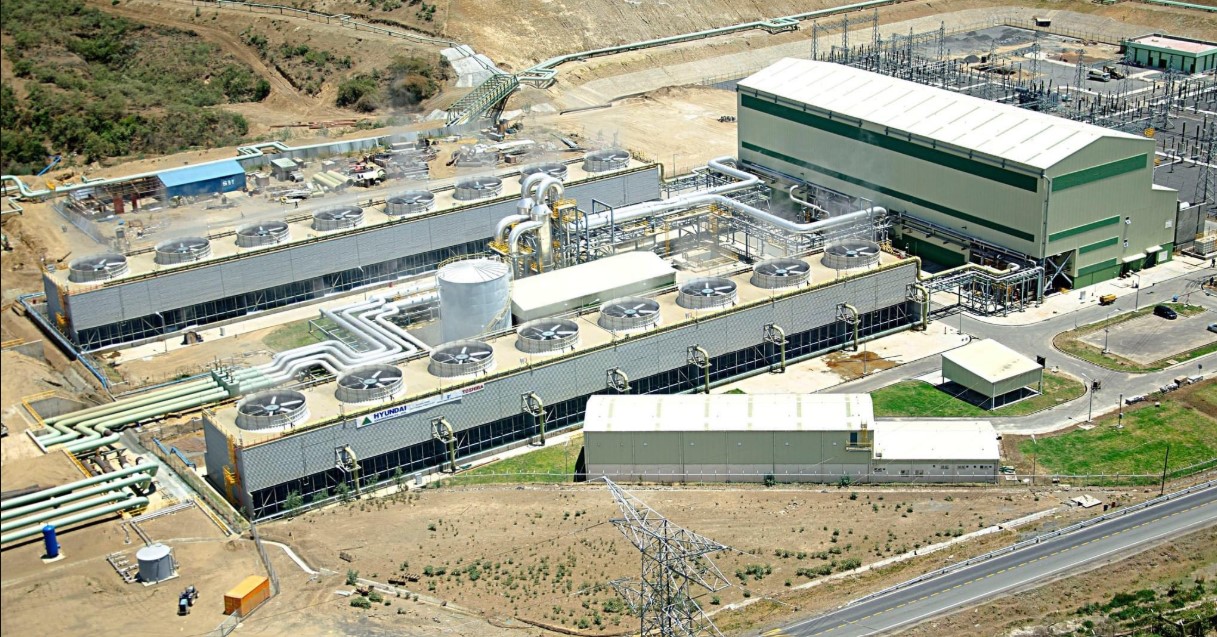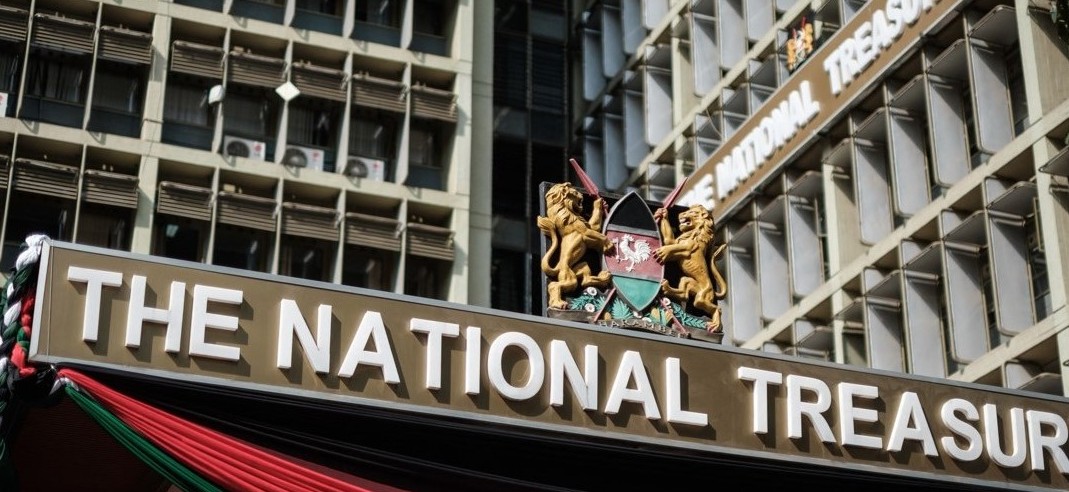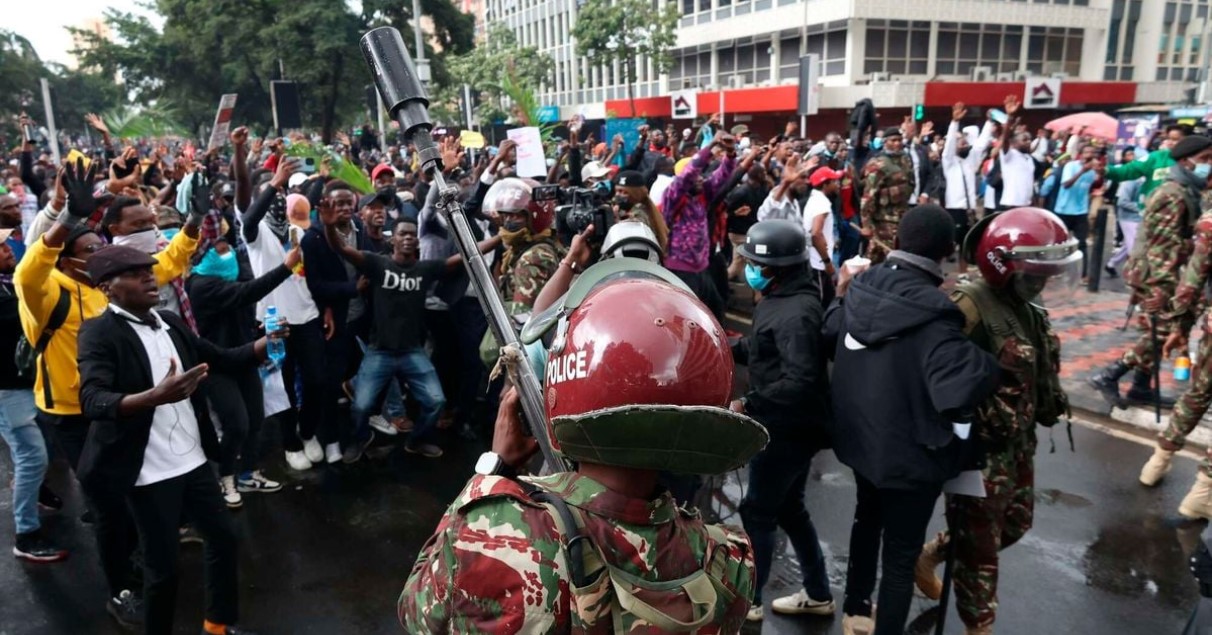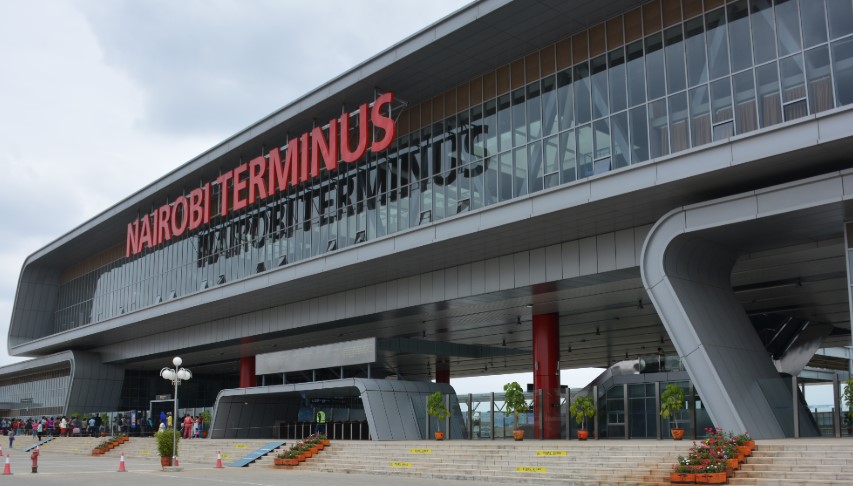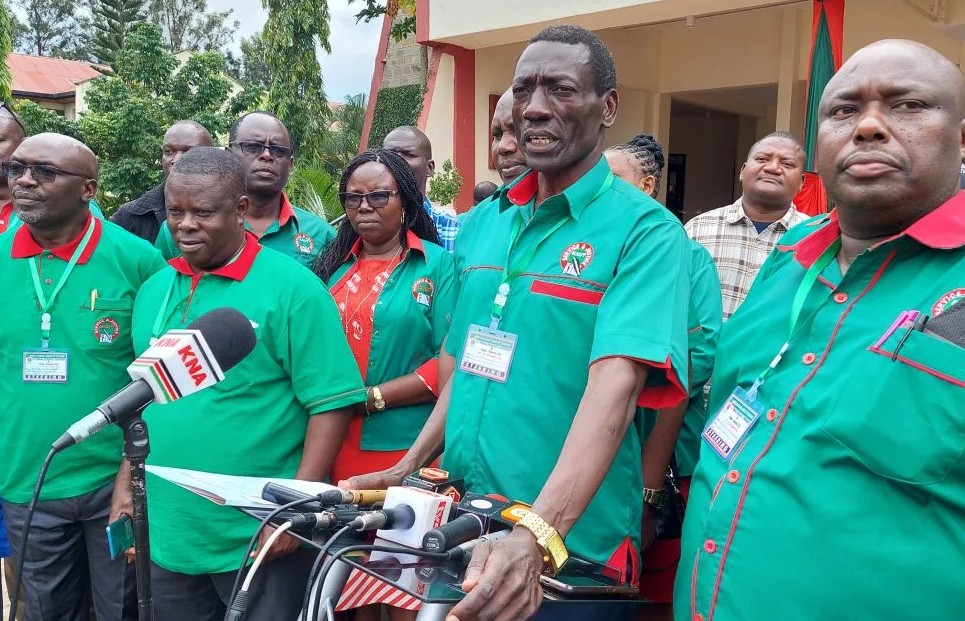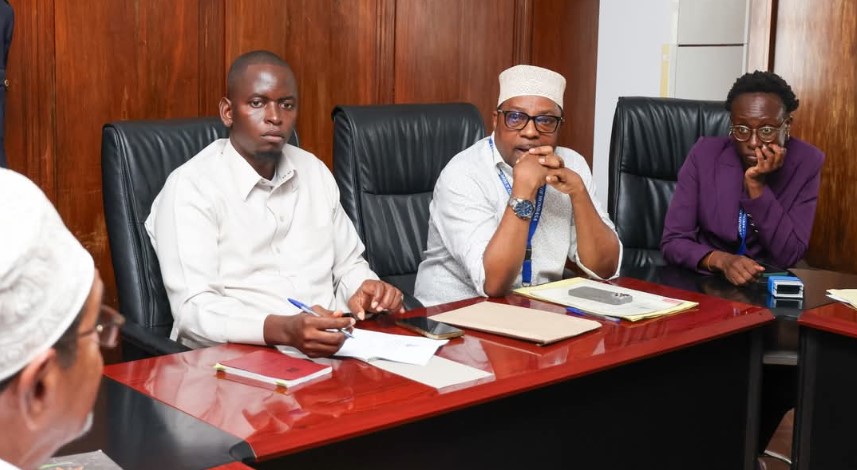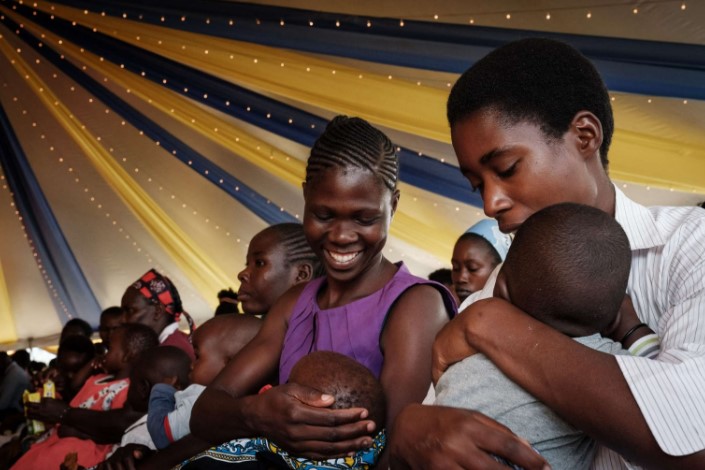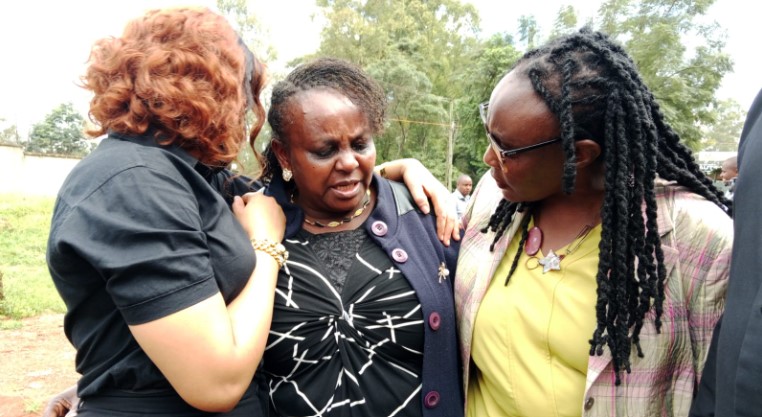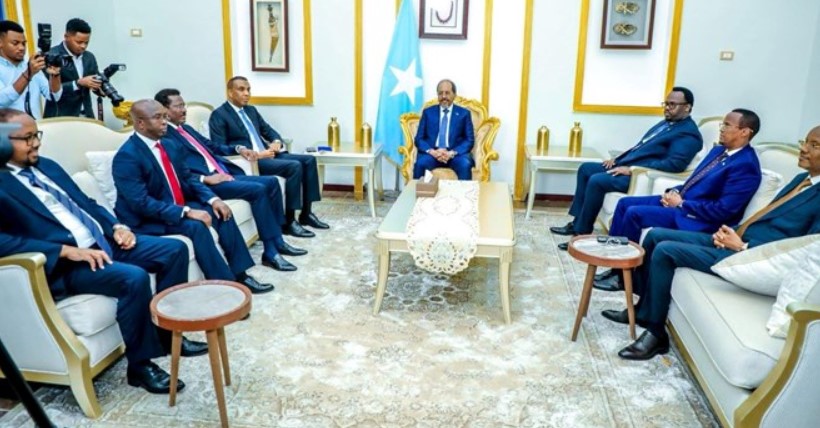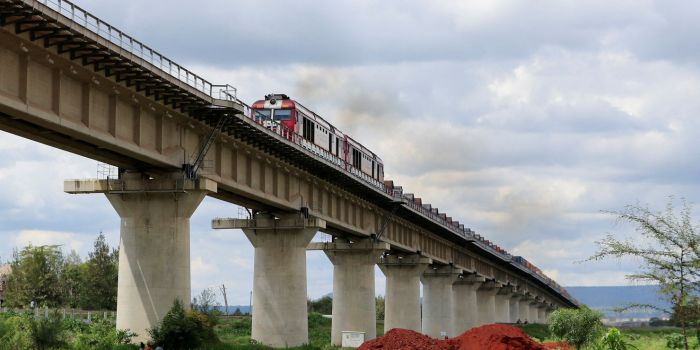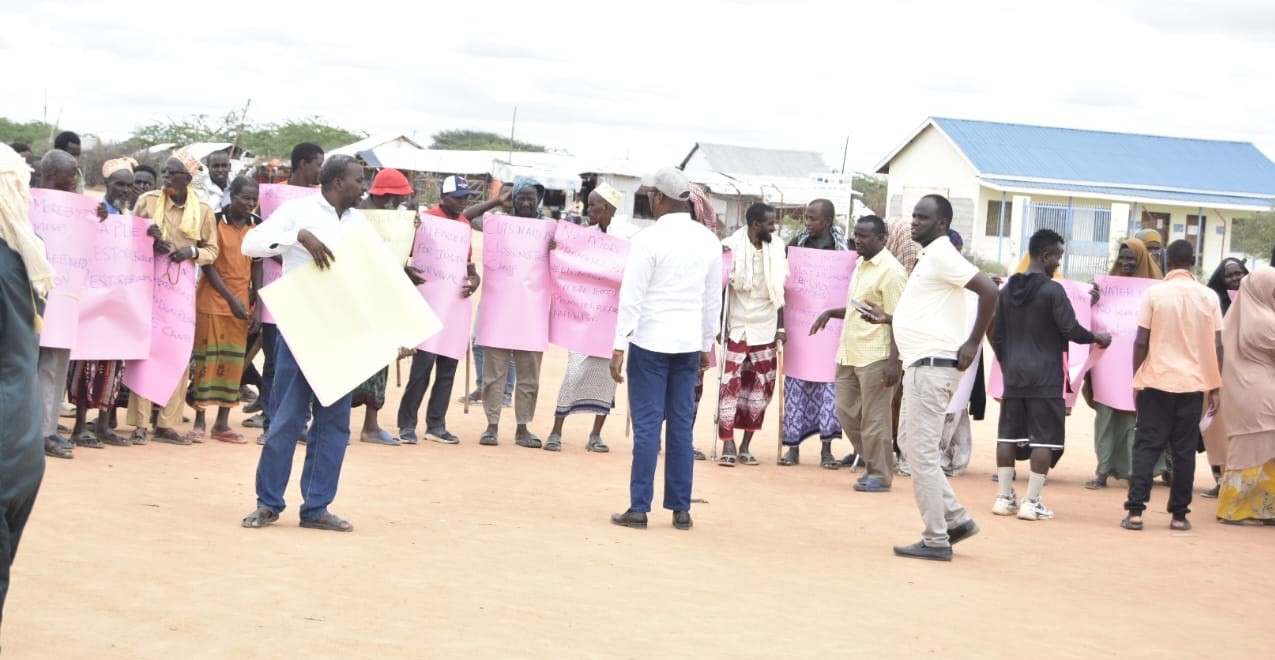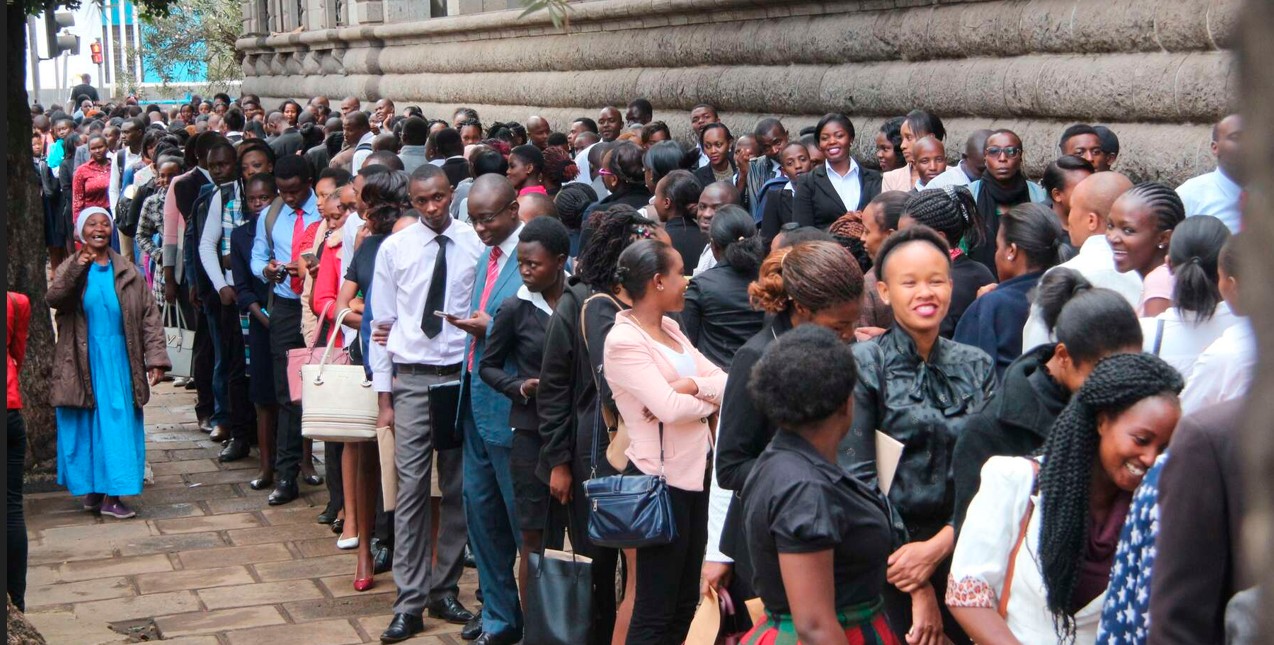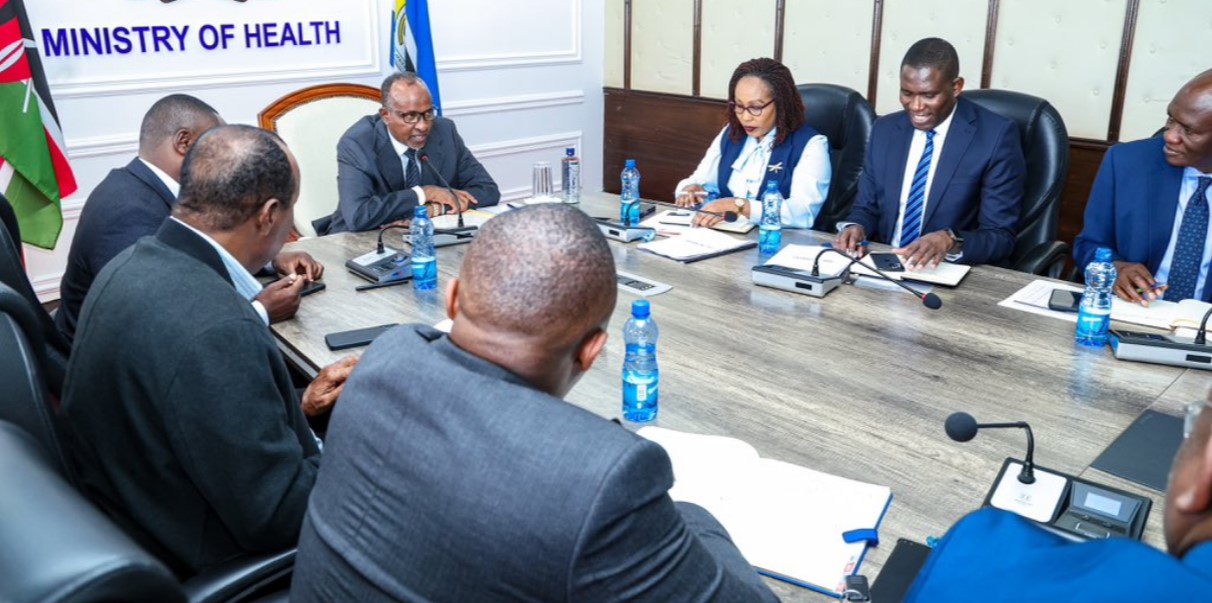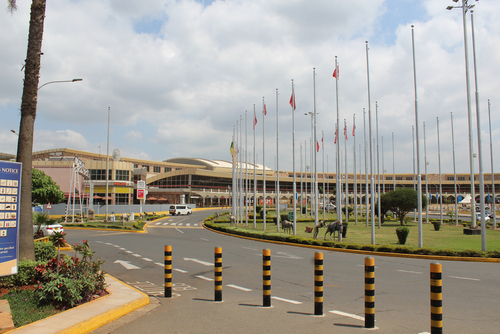Kenya loses bid to host global vaccine institute to Rwanda
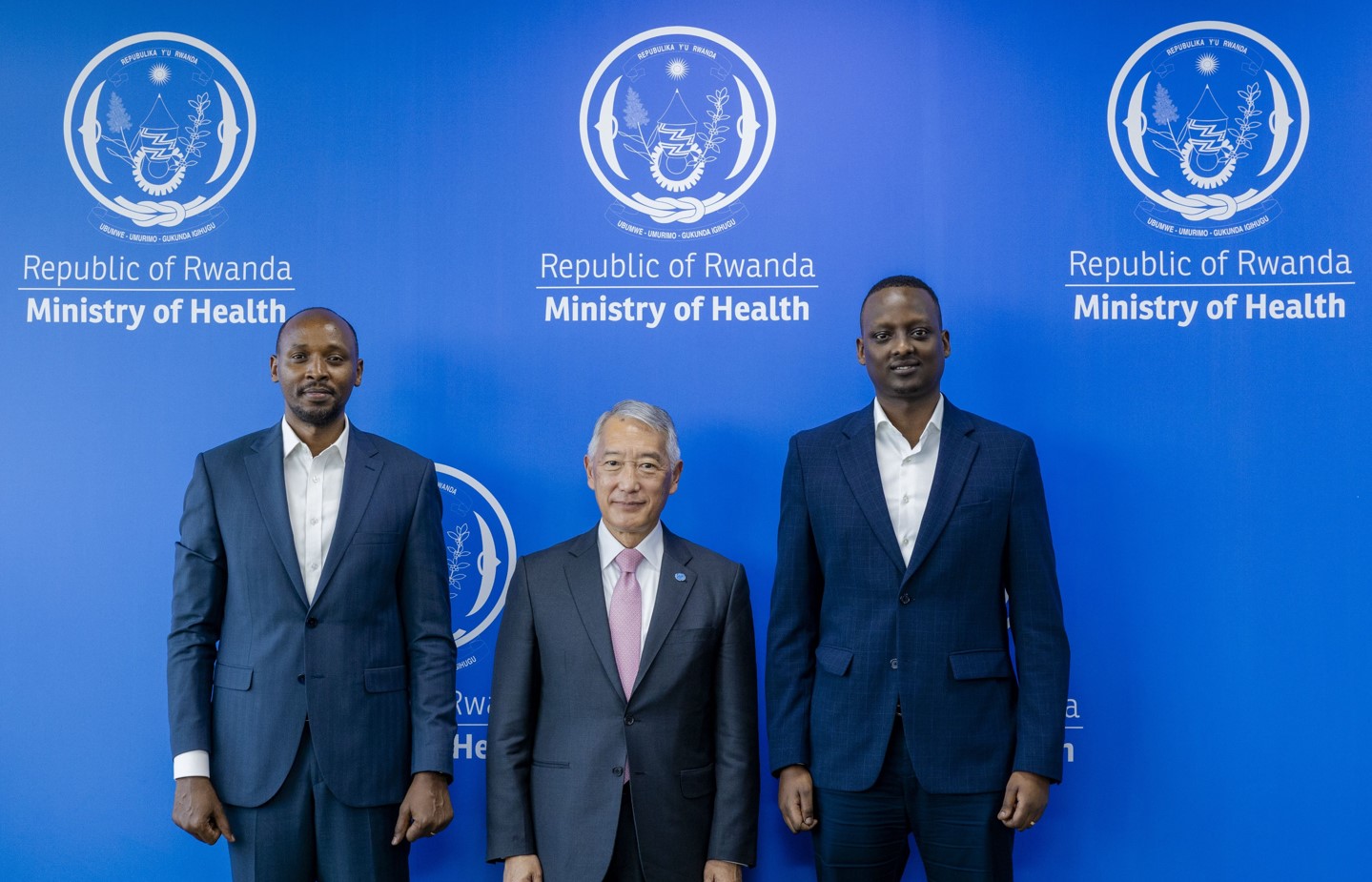
Kenya's aspiration to host the Africa regional office of the International Vaccine Institute (IVI) was shattered on Tuesday with the announcement that Rwanda had won the bid.
The Seoul-based global vaccine body reported that it had found "an excellent home" in Kigali and had the full support of the country's Ministry of Health and the University of Rwanda, which is said would be a "critical technical partner".
More To Read
- Health CS Duale vows to ensure SHA settles hospital claims by the 14th of each month
- Health Ministry issues public warning after hazardous chemical spill in Kiambu
- Health Ministry raises alarm over high worm burden in 15 counties amid open defecation crisis
- Kenya floods: Ministry says key health services provided at IDP camps
- Time running out for patients as doctors' strike persists
- Governors urge doctors to halt strike, resume talks
This decision came after confirmation from the IVI Board of Trustees, following a thorough evaluation of proposals from five African countries.
"We are thrilled to announce the decision to establish IVI's Africa regional Office in Rwanda. This new office will play a pivotal role in providing on-the-ground support and leadership for IVI's work in Africa...," IVI Director-General Jerome Kim said in a statement.
Acknowledging the win, Rwandan Health minister Sabin Nsanzimana stated, "Rwanda is taking a leap in bridging the vaccine equity gap on the African continent by venturing into local production of vaccines..."
He added that hosting the IVI Africa Regional office is "yet another milestone towards a resilient Africa with regard to potential public health emergencies and we are honored to serve as its host".
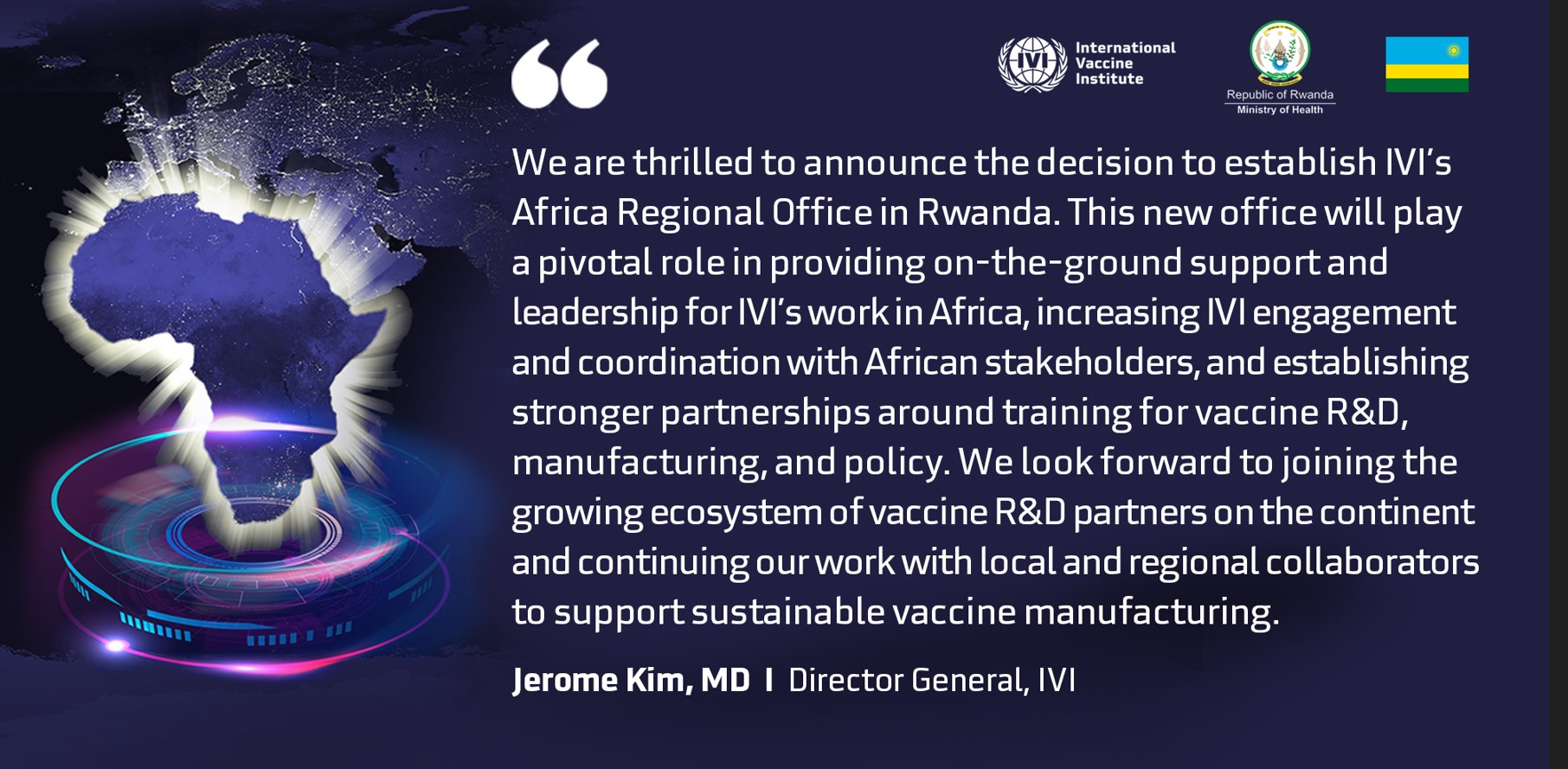
The development came a week after Kenyan Health Cabinet Secretary Susan Nakhumicha informed the Parliamentary Committee on Health that Kenya had emerged victorious in the bidding process to host the headquarters, following a rigorous selection process.
It has now come to light that the Kenyan minister's announcement was premature and that she misinformed the August House as the Seoul-based international non-profit organisation had not declared its decision.
CS Nakhumicha did not answer calls and messages from The Eastleigh Voice for comment on the development.
However, Foreign Affairs Principal Secretary Sing'oei Korir confirmed Kenya's bid to host the IVI's Africa office and directed inquiries to the Health ministry, which he said spearheaded the lobbying efforts.
The country's quest for self-sufficiency in vaccine production was hailed by President William Ruto last year during a meeting with Kim.
Nairobi's process of becoming a member of the body started in November 2022 when then Foreign Minister Alfred Mutua handed over a letter of intent to the Kim at a meeting chaired by President Ruto in Seoul, South Korea.
"We want to develop vaccines in Kenya. That is why we started the Kenya Biovax Institute as a vehicle for working with other stakeholders and institutions," Ruto said in Seoul during his first state visit to South Korea.
What ensued was a series of meetings and engagements in 2023, held in the country by the head of the global vaccine body and his delegation.
Kim interacted with Kenyan government officials, reigniting Nairobi's pursuit to host the African office.
In January of this year, Kenya Biovax officials accompanied the IVI boss to a site mapped for the construction of an end-to-end vaccine manufacturing facility in the Konza Metropolis, a demonstration of the country's commitment to vaccine production.
Biovax Kenya is a state agency established in 2021 and mandated with the manufacture, packaging and commercialisation of specialised health products and technologies including vaccines.
It is to lead the country in realising the dream of locally manufacturing human vaccines.
In Addis Ababa, Ethiopia, recently, the African Union (AU) voted to appoint President Ruto as the local manufacturing champion to ensure the continent reaches its goal of vaccine self-reliance.
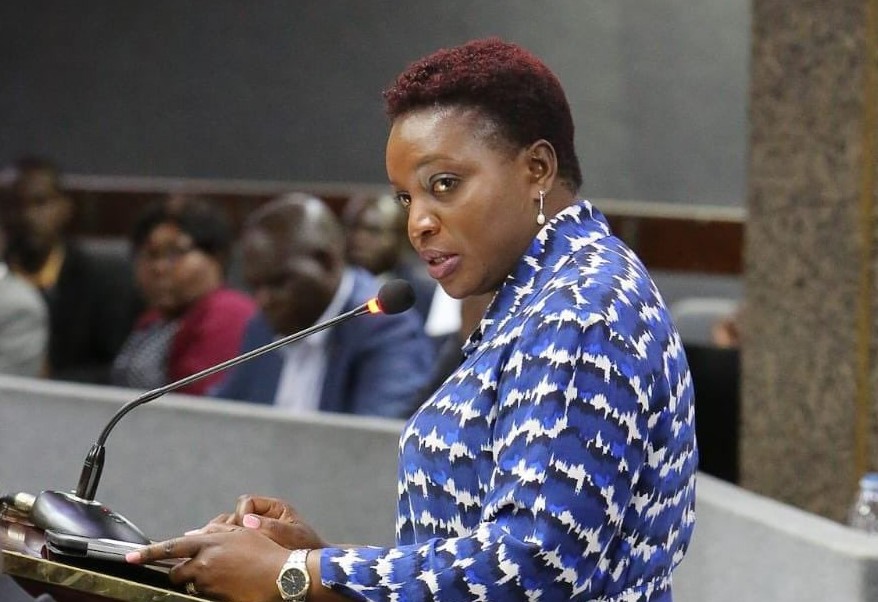 Health Cabinet Secretary Susan Nakhumicha during the National Validation Exercise on the Social Health Insurance Act Draft Regulations at the KICC in Nairobi on February 26, 2024. (Photo: X/ Ministry of Health)
Health Cabinet Secretary Susan Nakhumicha during the National Validation Exercise on the Social Health Insurance Act Draft Regulations at the KICC in Nairobi on February 26, 2024. (Photo: X/ Ministry of Health)
Poor lobbying
This setback has once again brought to the fore accusations of poor lobbying efforts by Kenya on the continental and global fronts.
Kenya has long faced criticism for its perceived lackluster lobbying efforts in securing regional, continental, and global bids, as well as positions for its candidates in international agencies.
During the African Union summit last February, former Africa CDC Acting Director Ahmed Ogwell Ouma was floored by Congolese Jean Kaseya in the race for the director-general post. The Kenyan is now the acting deputy director-general at the Africa CDC.
Ogwell had served as acting director for more than a year after his boss John Nkengasong was appointed by the US President Joe Biden to lead the US President's Emergency Plans for AIDS Relief in 2021.
Insiders at the Addis Ababa-based organisation accused the Kenyan government of deserting Ogwell at the last-minute, including denying him meetings with the country's top diplomat, President Ruto.
The position he is currently holding in acting capacity has been readvertised. Will Kenya fail him again?
This failure to effectively advocate for its representatives has raised concerns about Nairobi's diplomatic strategies and the ability to mobilise support from friendly states and partners.
Former Foreign Affairs Cabinet Secretary Raychelle Omamo lost her bid to become the first female President of the International Fund for Agricultural Development in 2022.
Omamo, who sought to exit then-President Uhuru Kenyatta's cabinet through vying for the prestigious position in the UN-founded agency, lost to Spain's Alvaro Lario.
Her failure to clinch the global seat came after weeks of silent lobbying by Uhuru's government.
Unlike Monica Juma's nomination for the post of secretary-general to the Commonwealth in late August 2022, which saw President Kenyatta issue a statement and a recorded video, Omamo's nomination was so low-key an affair that the nation came to learn of her selection by Kenyatta from the official website of the International Fund for Agricultural Development (IFAD).
Juma, Ruto's national security advisor, then Energy minister, pulled out of the Commonwealth race in late February 2022, suggesting divisions about her candidature in the club mainly of former British colonies.
This was after a spirited bid, with Nairobi lobbying far and wide and spending millions of dollars of taxpayer's money trying to persuade member states to vote for her.
Nairobi didn't explain clearly why she dropped out of the race at the last minute.
In October 2016, President Kenyatta nominated his then-Foreign minister Amina Mohamed as Kenya's candidate for chair of the African Union Commission (AUC) but she lost because of what some Addis-based diplomats described as Kenya's "greed" for such posts.
After the vote in 2017, South Sudan's Foreign minister James Morgan, then Juba's envoy in Ethiopia, said Kenya failed to convince even some of its closest allies from the East African Community (EAC) to vote for Amina.
"South Sudan voted for Kenya but it is surprising that Uganda, Burundi, Djibouti, and Tanzania did not vote for Kenya during the stages. We think it has to do with how Kenya relates to its neighbours," the envoy said in an interview at the time.
Three and a half years after she unsuccessfully contested for the AUC top job, President Kenyatta nominated Mohamed as Kenya's candidate for the World Trade Organization (WTO) direct0r-general post but she did not make the cut for the final round of the vote.
She and two others - Liam Fox (UK) and Mohammad Maziad Al-Tuwaijri (Saudi Arabia) - failed to secure enough support.
The inability to secure prominent positions within international organisations has had significant implications for Kenya as these roles provide a platform for countries to influence global agendas, shape policies, and contribute to decision-making processes.
Top Stories Today
- Revealed: Insider deals and offshore links driving up Kenya’s energy costs
- Waudo Street: Eastleigh’s alley which comes alive after midnight
- Devolution ministry gets Sh8bn boost in 2025-26 budget
- SGR loses 280,000 passengers in 2024 despite fare-driven revenue surge
- Dadaab refugees plead for aid restoration as US cuts bite
- LSK, Amnesty push DCI to release equipment seized over ‘Blood Parliament’ film
- Five arrested after explosives hidden in milk carton are found on passenger bus
- Explosions heard in Sudanese city of Port Sudan, witness says
- Taxpayers to fund Sh2.3 billion State House, lodges facelift
- AU, IGAD step up efforts to revive South Sudan's stalled peace process
- TSC begins search for new CEO as Nancy Macharia’s tenure nears end
- TSC declares over 2,000 teaching posts vacant in bid to fill staffing gaps
- Mombasa, Kilifi and Kwale among regions to be affected by power blackouts
- Papal conclave: All cardinals who will elect new pope arrive in Rome
- Sudan's RSF launches second drone attack in Port Sudan
- Mombasa CSOs clash with county assembly over budget estimates
- Kenya created 782,300 jobs in 2024, most in informal sector — KNBS report
- Somalia’s NCC meeting opens without Puntland, Jubbaland
- UHC staff told to resume duty as counties take over payroll
- KRA gives fuel stations June 30 deadline to integrate eTIMS
